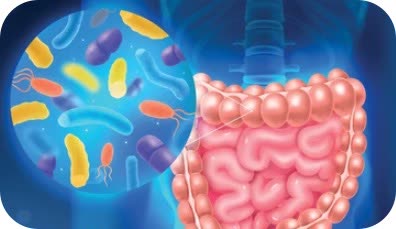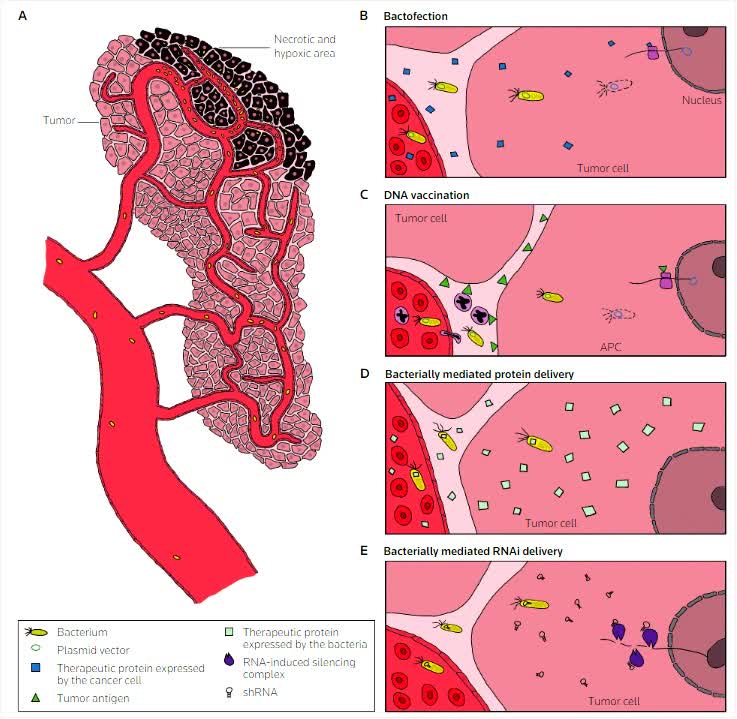Bacterial Vector Development
Inquiry
Bacterial vector development is the carrying of plasmid-based genes to a new host cell, i.e., bacterial vectors deliver genetic material to target cells. Gene therapy based on bacterial vector delivery is the integration of disease-treating genes into the genome of non-pathogenic bacteria through techniques such as gene editing and synthetic biology to construct engineered strains and deliver them orally to the gut, so that they can function as "drug factories" in the body to produce gene drugs for the treatment of diseases related to regulation of gut metabolism or immunotherapy-related diseases. CD Formulation has been an industry leader in the development of gene therapy formulations. Our technical support for bacterial vector development has helped researchers improve the targeting, safety, and efficacy of gene therapies, providing new therapeutic strategies for diseases that have been difficult to address with traditional treatments.
Advantages of Bacterial Vector
There are trillions of bacteria living in the human intestinal tract, which help the body to digest food, produce vitamins, and train the immune system. Utilizing these microbial communities to directly influence intestinal function and improve human health has broad application prospects and bacterial vector gene therapy is based on this concept.
- Higher safety. Bacterial vector gene therapy products are mostly selected by the carrier and are not harmful to the human body probiotics, safety is guaranteed, the treatment is more targeted, the drug in the human body between the differences is smaller. Microbial vectors can also realize local delivery in the intestinal tract, making drug safety more controllable.
- Better drug therapeutic effect. Compared with viral vectors, which are limited by the number and size of genes carried, bacterial vectors are able to integrate multiple target genes, realizing multi-target therapy to achieve better drug efficacy.
- High cost-effectiveness. Bacterial vector gene therapy products also have a greater advantage in research and development costs, and when the research and development are completed, the terminal price will also show an advantage, to benefit more patients.

Our Services for Developing Bacterial Vector
Target disease and gene selection
We first need to identify the target disease and the corresponding therapeutic genes. Our researchers have an in-depth understanding of disease mechanisms and can quickly identify which genes or proteins can be used as therapeutics.
Genetically engineered bacterial constructs
We construct genetically engineered strains by integrating selected therapeutic genes into the chromosomes of bacteria using gene editing techniques such as CRISPR-Cas9. These selected bacteria are usually non-pathogenic and can safely colonize the human body.
Bacterial strain optimization
This step requires optimization of the engineered strains to ensure that they can stably express the therapeutic genes in the intestinal environment and are biologically active enough to do so. This may include optimizing promoters, terminators, and other regulatory elements.
Delivery system development
We need to develop suitable delivery systems, such as oral delivery systems, to ensure that the engineered bacteria can safely pass through the acidic environment of the stomach, reach the gut and colonize there.
Safety assessment
During the preclinical research phase, we need to conduct a comprehensive assessment of the safety of the engineered bacteria, including their toxicity, immunogenicity, and potential ecological risks in animal models.
Validation of effectiveness
We can validate the effectiveness of engineered bacteria through in vitro experiments and animal models to ensure that they can express therapeutic genes at the target site and produce the desired therapeutic effect.
Bacterial Vectors Applied to Antitumor Therapy
For Salmonella can effectively inhibit the characteristics of tumor growth, our researchers can use a variety of genetic engineering techniques to modify the chromosome genome of Salmonella, Salmonella virulence can be weakened, so as to get the attenuated strains, a series of studies have shown that the attenuated Salmonella has a better targeting and colonization of tumors have a direct tocolytic effect. A series of studies have shown that attenuated Salmonella has better-targeted colonization and direct tumor lysis effect on tumors. The use of attenuated Salmonella to replicate and proliferate selectively in tumor tissues can effectively inhibit the growth of multiple tumor cells and prolong the survival time of animals. As a tumor gene therapy carrier, Salmonella attenuated can carry exogenous genes, cytokines, and exogenous effector proteins to treat tumors.
Our Platforms for Bacterial Vector Systems Development
| Technologies & Platforms |
Content Description |
| CRISPR-Cas9 technology platform |
We construct genetically engineered bacteria and develop them into an active biopharmaceutical by integrating potential disease therapeutic genes into specific sites on bacterial chromosomes through a CRISPR-Cas9-based gene editing method. |
| RNA interference technology |
We engineer bacteria-mediated RNA interference therapy that can transport therapeutic RNA into target cells, silencing cancer-associated mRNA and inhibiting tumor growth. |
| Smart polymer coat technology |
We engineer smart polymer coats for bacteria for better bioavailability and efficacy during in vivo delivery with reduced side effects. |
Highlights of Our Bacterial Vector Development Service
- Flexibility. Multiple scales and different levels of bacterial vector production are available, more efficient and lower cost.
- Professionalism. Our process development and production team has many years of service experience in bacterial vector development.
- Advanced equipment. We have international advanced laboratory equipment to ensure the efficiency and accuracy of bacterial vector development.
- Customization. We can enhance customized bacterial vector development solutions according to our customers' experimental goals.
Published Data
Technology: Bacterial vector development
Journal: IDrugs
IF: 11.5
Published: 2010
Live bacterial vectors may be useful tools for the development of novel cancer therapies that can be added to the repertoire of existing drugs. Several bacterial strains effectively colonize solid tumors and act as antitumor therapeutics. The naturally occurring tumor-colonizing characteristics of bacterial species such as Salmonella, Clostridium and Escherichia coli can be further modified by genetic manipulations, making these bacterial systems excellent vehicles for the production and targeted delivery of therapeutic molecules into cancer cells.
 Fig.2 Antitumor effects of tumor tissue-colonizing bacteria. (Gardlik R, et al. 2010)
Fig.2 Antitumor effects of tumor tissue-colonizing bacteria. (Gardlik R, et al. 2010)
CD Formulation is dedicated to the development of gene therapy formulations. Based on our advanced platform and professional technical team, we provide efficient and reliable technical services for bacterial vector development, aiming to promote the research and application of non-viral vectors in gene therapy together with researchers. If you are interested in us, please feel free to contact us.
References
- Gardlik R, et al. Bacterial vectors and delivery systems in cancer therapy. IDrugs. 2010, 13(10):701-6.
Related Services


 Fig.2 Antitumor effects of tumor tissue-colonizing bacteria. (Gardlik R, et al. 2010)
Fig.2 Antitumor effects of tumor tissue-colonizing bacteria. (Gardlik R, et al. 2010)